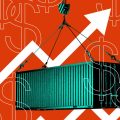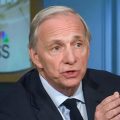Renowned billionaire investor Ray Dalio recently issued a stark warning, expressing concerns that extend far beyond the looming threat of a recession. His anxieties center on a fundamental shift in the global political landscape, a transition he believes poses an even greater danger to the world economy.
Dalio’s central concern revolves around the shift from a multilateral world order, largely shaped by American influence, towards a more unilateral system characterized by significant conflict. This isn’t simply a prediction of increased geopolitical tension; it’s a forecast of a systemic change with potentially devastating economic repercussions. The interconnected nature of the global economy means that instability in one region can quickly ripple outwards, creating a domino effect of financial hardship.
He argues that this transition is already underway, with evidence visible in the growing tensions between major world powers. The implications are far-reaching, impacting everything from international trade agreements to the stability of global financial markets. A world fractured along ideological lines, with competing power blocs vying for dominance, is a recipe for uncertainty and volatility, making investment decisions incredibly challenging.
The shift away from multilateralism, Dalio suggests, threatens the established frameworks of cooperation and diplomacy that have, to a large extent, maintained a semblance of order in the global system for decades. The loss of these collaborative structures could lead to increased protectionism, trade wars, and a general decline in global cooperation, all of which would significantly hinder economic growth.
While the threat of a recession remains a significant concern, Dalio’s warning highlights a deeper, more systemic problem. It suggests that the economic challenges ahead are not merely cyclical downturns but are rooted in a fundamental restructuring of the global power dynamic. Understanding this shift is crucial for navigating the turbulent economic waters ahead, and investors and policymakers alike would be wise to heed his cautionary words.
The implications of Dalio’s analysis are profound, calling for a reassessment of traditional economic models and forecasting methods. The future, according to Dalio, is less about predicting market cycles and more about understanding the evolving geopolitical landscape and its impact on global economic stability. It’s a time for careful consideration, strategic planning, and perhaps, a reassessment of what constitutes ‘risk’ in the modern world.










